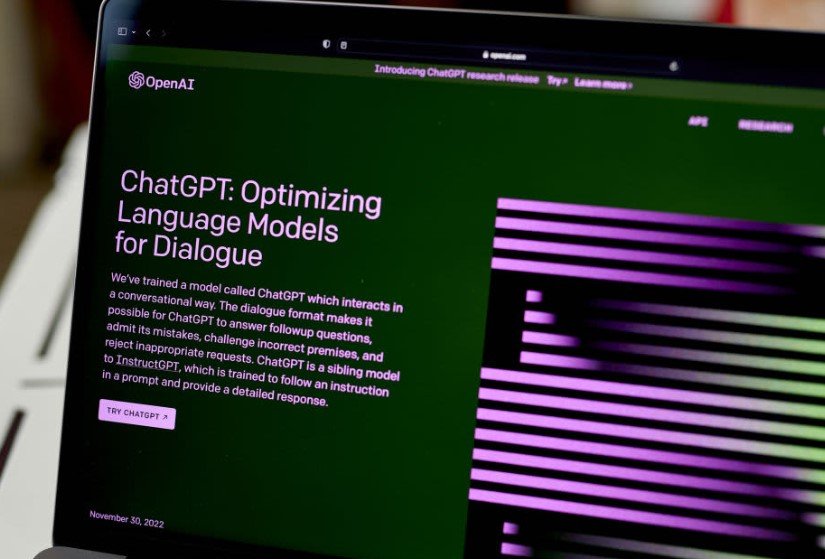Microsoft has poured billions into artificial intelligence, but its digital assistant Copilot is still trailing behind ChatGPT by a country mile. While Copilot tries to find its footing across Windows and Office, OpenAI’s ChatGPT is busy taking over smartphones across the globe—with over 900 million downloads and counting.
The numbers tell a lopsided story. Microsoft may be OpenAI’s biggest backer, but ChatGPT is stealing all the thunder.
The Control Key Nobody Asked For
For Tyson Jominy, Copilot is more of a nuisance than a helpful companion.
He leads data and analytics teams, yet says he only uses Copilot during work hours—because it’s there, not because he wants it. On his personal time, it’s ChatGPT and Elon Musk’s Grok that he reaches for. Copilot? It usually appears when he accidentally presses a key.
And he’s not alone. Across industries, casual users and professionals alike seem to view Copilot as something that just happens—rather than something they choose.
This sentiment has become pretty common. People still don’t fully understand what Copilot is supposed to do. Or why it’s suddenly integrated everywhere from Word documents to Windows taskbars.

A Massive Download Gap
The download numbers are startling.
According to data from Sensor Tower, the Copilot mobile app has seen 79 million downloads. Not bad—unless you compare it to ChatGPT’s towering 900 million.
That’s more than 11x the installs. And the pace shows no signs of slowing.
Just a year ago, both apps were in similar territories. But since then, ChatGPT’s mobile presence has surged, thanks in part to:
-
A simplified, standalone app experience
-
Frequent updates and feature drops
-
Clear branding that distinguishes it from enterprise tools
Meanwhile, Copilot feels more like a background utility baked into Office and Windows. It’s rarely used intentionally—unless someone works in tech or corporate IT.
Microsoft’s Branding Confusion Isn’t Helping
Let’s be honest, “Copilot” is everywhere—and that’s part of the problem.
There’s GitHub Copilot. There’s Microsoft 365 Copilot. Windows Copilot. Azure Copilot. And now, the Copilot mobile app. They’re all related, but not exactly the same.
This has led to serious branding fatigue. Users don’t know what version does what. And it gets even messier when the apps try to talk to each other—or don’t.
ChatGPT, by contrast, has one name. One app. One voice.
Even Elon Musk’s Grok, which lives inside the X app, doesn’t try to confuse its users with different versions or overlapping interfaces. It just talks. Like ChatGPT does. Simply and clearly.
Table: ChatGPT vs. Copilot – Mobile Adoption (as of July 2025)
| App | Total Downloads | App Store Rating | Key Strength |
|---|---|---|---|
| ChatGPT | 900 million | 4.7 / 5 | Simplicity and speed |
| Microsoft Copilot | 79 million | 4.1 / 5 | Tied into Office ecosystem |
The gulf is enormous. And while ratings don’t tell the full story, they show how users are feeling when they interact with these tools.
Not a Software Problem, But a Behavior One
This isn’t just about features. It’s about habits.
ChatGPT fits neatly into people’s lives—whether they’re brainstorming emails, writing bedtime stories, or asking follow-up questions about the news. It’s there when people want it, and it behaves like a conversation.
Copilot, on the other hand, tries to embed itself into work routines. That’s great for enterprise productivity, but it’s not the kind of app people turn to at the dinner table.
Jominy’s take sums it up: “I use Copilot because I have to at work. But ChatGPT? I want to use it.”
That gap—between have to and want to—is what Microsoft has yet to bridge.
OpenAI’s Head Start and Microsoft’s Internal Juggling
Here’s the twist: Microsoft owns a huge stake in OpenAI. It even runs ChatGPT’s cloud infrastructure. So why is its own branded AI assistant struggling?
Part of the issue lies in Microsoft’s complex internal priorities. It’s trying to integrate AI into every product it sells—Office, Teams, Azure, Windows—while OpenAI gets to focus on just one thing: ChatGPT.
That singular focus makes all the difference.
And as OpenAI builds more brand trust with users, Microsoft risks becoming just the infrastructure provider—powering the AI revolution, but not leading it.
The Road Ahead Isn’t Closed—Yet
Copilot isn’t doomed. Microsoft still controls the most widely used desktop OS in the world. It still dominates the office productivity market. And Copilot is baked into all of it.
But if Microsoft wants people to choose Copilot the way they choose ChatGPT, it needs to rethink its approach. That might mean:
-
Making Copilot feel more personal
-
Breaking down product silos
-
Giving users a reason to tap the Copilot app voluntarily—not by accident
Right now, ChatGPT is winning hearts. Copilot is winning checklists.
And in the consumer AI space, hearts matter more.







